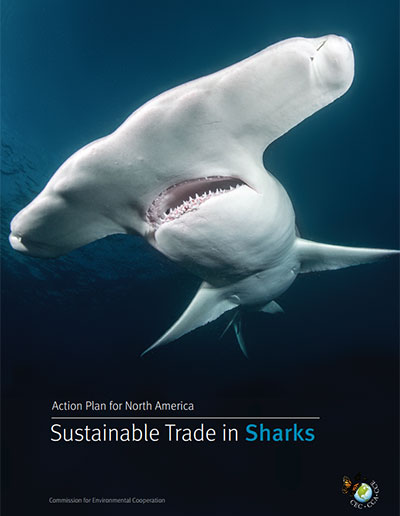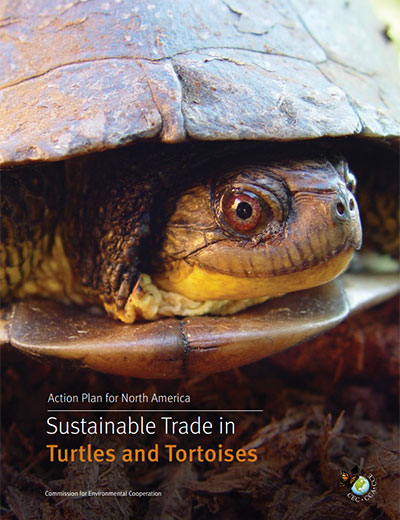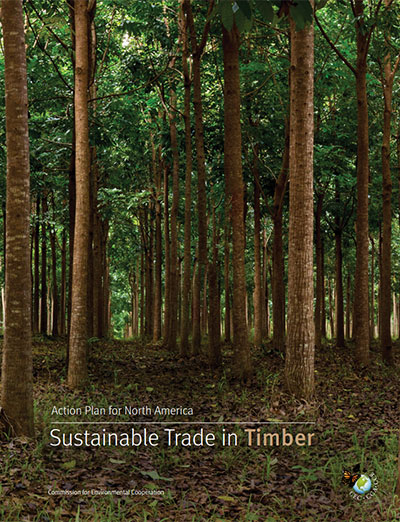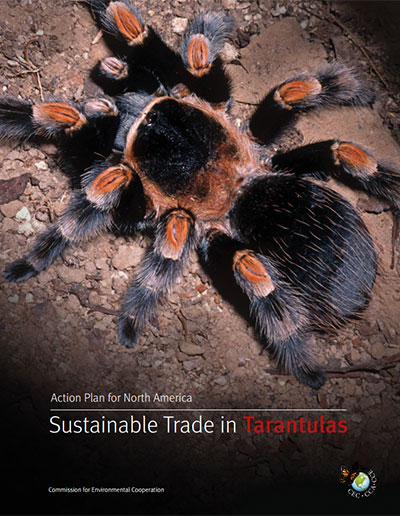
Action Plans

Sustainable Trade in Sharks: Action Plan for North America
Publication date: May 17, 2017Eight shark species, from six different genera, were selected for this project and designated as “priority shark species.” Information was compiled for the species as a group, including: the impact of trade on conservation and livelihoods; completion of CITES non-detriment findings (NDFs); and identification challenges for CITES enforcement. The eight species were also assessed as to their distribution, conservation status, trade and commercial pricing. A total of 17 recommended actions are proposed to improve cooperation among North American stakeholders, expand collection and analysis of shark fisheries and trade data, increase public awareness, update shark fisheries management in Mexico, and build enforcement capacity. These actions were developed based on the information compiled for this document and from consultation with stakeholders.

Sustainable Trade in Turtles and Tortoises: Action Plan for North America
Publication date: May 17, 2017Twelve turtle and tortoise species, from seven genera, were selected as “priority turtle species” and are the subject of this action plan. Information was compiled for the species as a group, including: the impact of trade on conservation and livelihoods; completion of CITES non-detriment findings (NDFs); and identification of challenges for CITES enforcement. The 12 species were also assessed as to their distribution, conservation status, trade and commercial value. A total of 18 recommended actions are proposed to improve cooperation among North American stakeholders; promote research on captive husbandry of Dermatemys mawii; develop policy for sustainable commercial turtle production and recovery of wild populations; and develop enforcement capacity-building. These actions were devised based on the information compiled for this document and from consultation with stakeholders.

Sustainable Trade in Timber: Action Plan for North America
Publication date: May 17, 2017Eight plant taxa, from two genera of cacti and two genera of trees, were selected as “priority timber species” and are the subject of this action plan. Information was compiled for the taxa as a group, including: the impact of trade on conservation and livelihoods; making CITES non-detriment findings (NDFs); and identification challenges for CITES enforcement. The eight taxa were also assessed as to their distribution, conservation status, trade and commercial value. A total of 17 recommended actions are proposed, to: improve cooperation among North American stakeholders; support field and trade research; build enforcement capacity; improve community awareness; review and establish government policy; and increase sustainable production of wood in Mexico. These actions were developed based on the information compiled for this document and from consultation with stakeholders. Consultation included a stakeholder workshop held on 25–26 October 2016 in Mexico City.

Sustainable Trade in Parrots: Action Plan for North America
Publication date: May 17, 2017Eleven parrot species, from seven genera, were originally selected for this project. However, a taxonomic review found that two of the selected species had been renamed and were now considered to be the same species. The ten species thus remaining were designated “priority parrot species” and are the subject of this action plan. Information was compiled for the species as a group, including the impact of trade on conservation and livelihoods; making CITES non-detriment findings (NDFs); and species-identification challenges for CITES enforcement. The ten species were also assessed as to their distribution, conservation status, trade and commercial value. A total of 19 recommended actions are proposed, to: improve cooperation among North American stakeholders; review government policies on captive breeding and trade; promote in-situ conservation; reduce the threat of introduced species; and build enforcement capacity. These actions were developed based on the information compiled for this document and from consultation with stakeholders. Consultation included a stakeholder workshop held on 25–26 October 2016 in Mexico City.

Sustainable Trade in Tarantulas: Action Plan for North America
Publication date: May 17, 2017Sixteen tarantula species, comprising one from the genus Aphonopelma and 15 from the genus Brachypelma, were selected as “priority tarantula species” and are the subject of this action plan. Information was compiled for the species as a group, including: the impact of trade on conservation and livelihoods; making CITES non-detriment findings (NDFs); and identification challenges for CITES enforcement. The 16 species were also assessed as to their distribution, conservation status, trade and commercial value. A total of 18 recommended actions are proposed, related to: improved cooperation among North American stakeholders involved in the trade chain; government policies that promote captive-breeding and sustainable trade in Mexico; biological and trade information; and conservation and enforcement. These actions were developed based on the information compiled for this document and from consultation with stakeholders. Consultation included a stakeholder workshop held on 25–26 October 2016 in Mexico City.